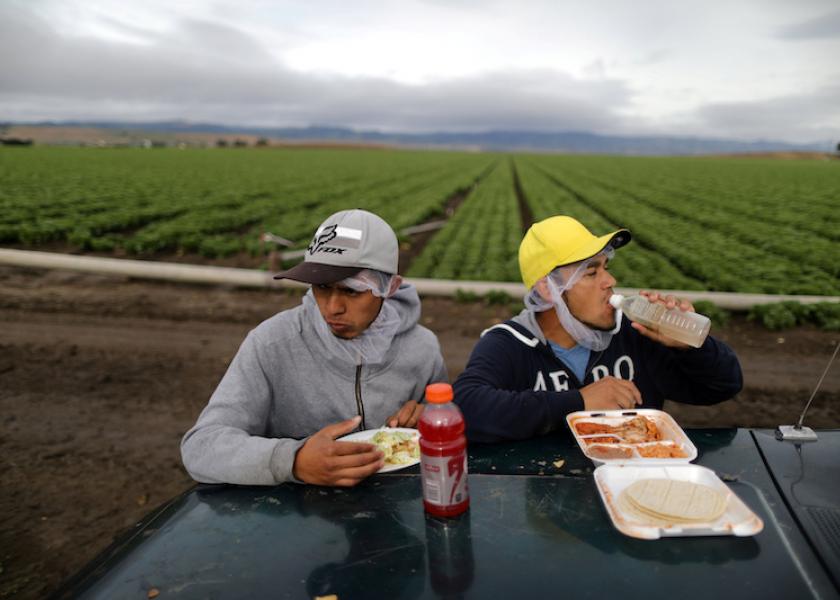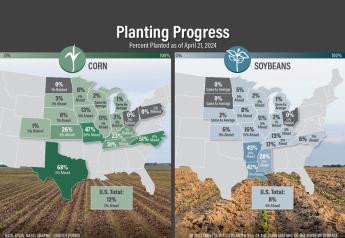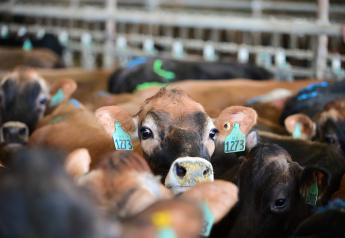House to Take Up Second Bill to Revise H-2A Worker Program

The House has already passed, for the second time, a sweeping reform of the H-2A guestworker program which would allow a year-round workforce and provide a path to citizenship for farmworkers. That measure, the Farm Workforce Modernization Act, however, faces unlikely odds in the Senate.
House Agriculture Committee Member Cong. Rick Crawford (R-Ark.) sees problems with the bill and has introduced his own plan to rework H-2A, the Agricultural Guest Worker Reform Initiative (AGRI) Act.
Crawford outlined his objections to the Farm Workforce Modernization Act on the AgriTalk Radio Show with Chip Flory.
“There are some issues there that just don't really get to the heart of the matter in terms of streamlining and making the H-2A program more workable, more affordable,” Crawford told Flory. “And then the other issue is this - Essentially we're setting up amnesty where you've got to be in the country and demonstrate having worked on the farm for 150 days or something like that, and that would qualify you for citizenship. We need to discard the assumption that everybody that comes to the United States to work in the agriculture field is here because they want to be a citizen. That's not necessarily true. And in many cases, they're here simply because they're trying to earn money and send it back home, and they can find the employment here to do that.”
One key difference of the AGRI Act is that it transfers administration of the H-2A program from the Department of Labor to the Department of Agriculture. Under the bill, farmers would be able to enroll at a local Farm Service Agency office.
Crawford said both farm owners and workers need a better foreign workforce program that provides for year-round employees and is more affordable.
“It's hard to get it right,” Crawford said on AgriTalk. “We feel like the AGRI Act come as close to getting it right as anything we've seen thus far in terms of trying to make the program affordable, trying to make it easier for employers to comply, easier for employees to comply, provide the incentives necessary on both counts to actually engage in the program, do it aboveboard. The last thing we want to do is create an environment where we are forcing employers to hire off the books and employees to work off the books. That doesn't help us at all. In fact, it creates more problems, because it denies citizens the revenue associated with the labor that every other worker has to pay.”
The proposed expansion of H-2A is welcomed by many in the livestock industry such as Washington state dairy producer Dwayne Faber.
“For us in dairy, we have work 365 days a year, and so this new iteration which allows them to come for 10 months and then one month back in their home country, I think that is a nod to dairy. And we appreciate that in the dairy industry,” Faber said on AgriTalk. “We want to be aboveboard. And quite frankly, for an 18-year-old, 19-year-old kid that can come to America and work for three years, build up some savings and then go back to his country. That individual’s set for life, just about. They can have a paid off house going back to Mexico, right? Just with the currency exchange. And that's fantastic.”
A decision on the H-2A program will determine where and how U.S. consumers get their food, according to Minnesota Farm Bureau President Kevin Paap.
“We've got to realize the facts are the facts. We've got immigrant farmworkers that play a vital role in feeding all Americans,” Paap told Flory on AgriTalk. “We’ve got a current, qualified, hardworking, experienced and unauthorized workforce, so I think we have to ask ourselves the question, do we want to import our labor or import our foods?”







